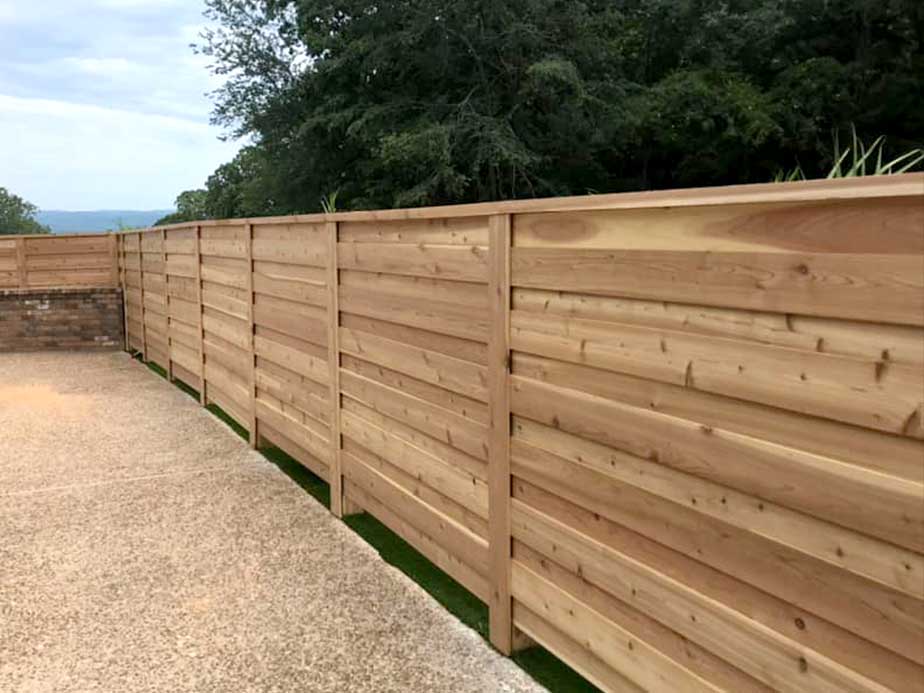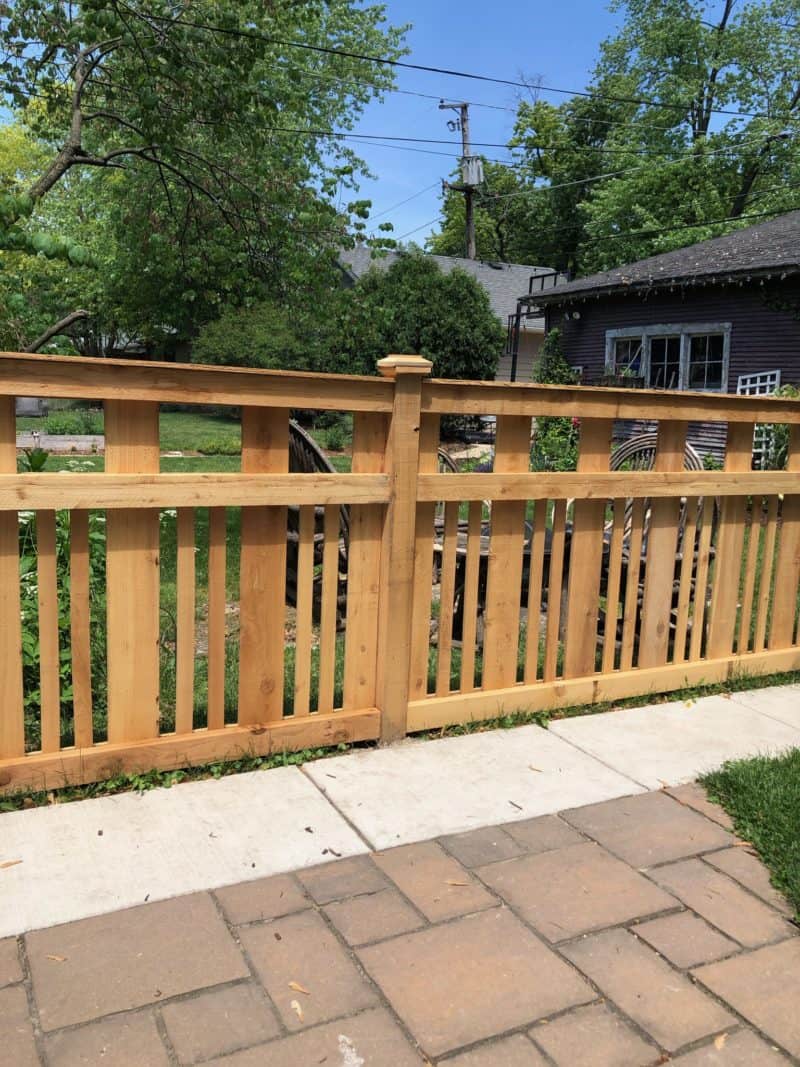All Categories
Featured

When it pertains to choosing a fencing that supplies both privacy and noise reduction, picking the ideal products is critical. Whether you're seeking to obstruct out the noises of website traffic, offer your lawn with more privacy, or simply improve your home's aesthetic appeals, particular fence materials do better than others. Let's check out the most effective alternatives for creating an exclusive, tranquil environment.
- Wood Fence. Timber fences are among one of the most popular options for house owners seeking to boost privacy and lower sound. The density and thickness of timber give a natural barrier that can soak up audio properly. Wood additionally supplies flexibility in terms of layout, enabling solid, no-gap building that aids block noise from the outdoors.
Ideal for: Home owners looking for a classic, rustic appearance while taking advantage of privacy and noise decrease. Upkeep: Wood fences call for even more maintenance than various other materials, including discoloration or paint to protect them from the components. Routine securing can likewise assist avoid rot and decay. Sound Reduction: Solid timber fencings are efficient at wetting noise. A constant, no-gap wood fencing works best to block audio, specifically when constructed with thicker slabs. 2. Vinyl Secure fencing. Vinyl fencings are a low-maintenance alternative to timber that still supplies respectable noise reduction and personal privacy. While vinyl does not have the same sound-dampening high qualities as timber, it does provide a strong surface area that can block some external noise. The included benefit of vinyl is its resistance to weathering, decaying, and discoloration, making it a lasting alternative.

Best for: Home owners that desire a maintenance-free fence that still offers personal privacy and some sound decrease. Upkeep: Vinyl calls for extremely little upkeep. It's very easy to clean and does not discolor or splinter, unlike timber. Sound Reduction: Solid plastic fences offer modest sound decrease. While not as reliable as timber, they still aid decrease the influence of road noise, specifically when set up with tight-fitting panels. 3. Compound Secure fencing. Composite fences integrate the ideal functions of both timber and vinyl. Made from a blend of recycled timber fibers and plastic, composite fences are durable, low-maintenance, and much more immune to weather than timber. Their thickness allows them to block audio successfully, and they are much less susceptible to rot or fading compared to conventional timber fences.
Best for: House owners that desire a long lasting, environment-friendly alternative to wood with far better performance than vinyl. Upkeep: Compound fences require marginal maintenance. They do not require to be painted or tarnished and can be easily cleansed with soap and water. Sound Reduction: As a result of their thickness, composite fences provide excellent sound decrease properties, comparable to wood fencings, while providing a longer lifespan. 4. Stone or Brick Walls. For those trying to find the supreme secretive and sound stone, decrease or brick wall surfaces are unequaled. These heavy, strong structures work as outstanding audio obstacles and provide full privacy. Stone and block are normally dense, and their mass assists to block both low-frequency and high noises from passing through.
Best for: House owners who require maximum sound reduction and personal privacy, and who want to spend in an extra permanent option. Maintenance: Rock or block walls require very little maintenance, with the occasional check for splits or damage. They don't need paint or sealing, that makes them a low-maintenance option in the lengthy run. Sound Reduction: Rock or brick is one of the most effective option for noise reduction. Their density and strength create an impenetrable obstacle against sound, making them perfect for areas near loud environments or active streets. 5. Steel Secure Fencing with Acoustic Panels. While metal fencings like light weight aluminum or steel are typically not as effective in soundproofing, they can be enhanced with acoustic panels to enhance sound decrease. The combination of sturdy metal and soundproofing products gives a streamlined and modern remedy for those wanting to obstruct noise while keeping a contemporary visual.
Best for: Property owners who want a modern, resilient fencing with enhanced soundproofing capabilities. Upkeep: Metal fencings call for extremely little maintenance, though they may need rust prevention in locations with high moisture or salt exposure. Sound Decrease: When coupled with acoustic panels or soundproofing foam, steel fences can dramatically lower sound. The panels help soak up noise, while the metal framework supplies longevity and protection. 6. Greenery or Living Fences. For an all-natural solution, living fences, such as thick bushes or thick plant, can help soak up audio and give a sense of personal privacy. While not as reliable as strong barriers like wood or rock, well-kept plants like bamboo, privet, or cypress can help in reducing the impact of sound, especially in even more country or rural locations.

Ideal for: Home owners who desire a natural, environmentally friendly personal privacy fencing that mixes with the landscape. Maintenance: Greenery fencings call for routine trimming and treatment to ensure they stay healthy and thick. They can also be susceptible to insects or disease. Sound Reduction: While not as reliable as strong fencings, thick hedges can still use some noise decrease, specifically for high-frequency noises. Conclusion. When it comes to creating a quiet and private space, the best fencing materials for sound reduction and personal privacy consist of wood, composite, rock, vinyl, and block. Plastic fences are low-maintenance and can minimize sound, though not as effectively as wood.
Choosing the appropriate material relies on your spending plan, preferred visual, and the level of privacy and noise reduction you require. Whichever product you choose, spending in a top notch, well-built fence will enhance your home's personal privacy and comfort while reducing unwanted noise.
Latest Posts
Picking the Right Roof Shade: Influence On Energy Performance
Published en
1 min read
Check Out Brake Repair & More: Full Auto Care Solutions from Montclare Auto Repair
Published en
1 min read
Searching for Budget-Friendly Oil Change Solutions in St. Louis? Car-X Delivers Quality Care
Published en
1 min read
More
Latest Posts
Picking the Right Roof Shade: Influence On Energy Performance
Published May 21, 25
1 min read
Check Out Brake Repair & More: Full Auto Care Solutions from Montclare Auto Repair
Published May 21, 25
1 min read
Searching for Budget-Friendly Oil Change Solutions in St. Louis? Car-X Delivers Quality Care
Published May 20, 25
1 min read